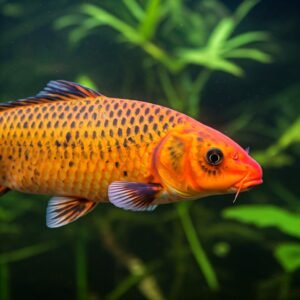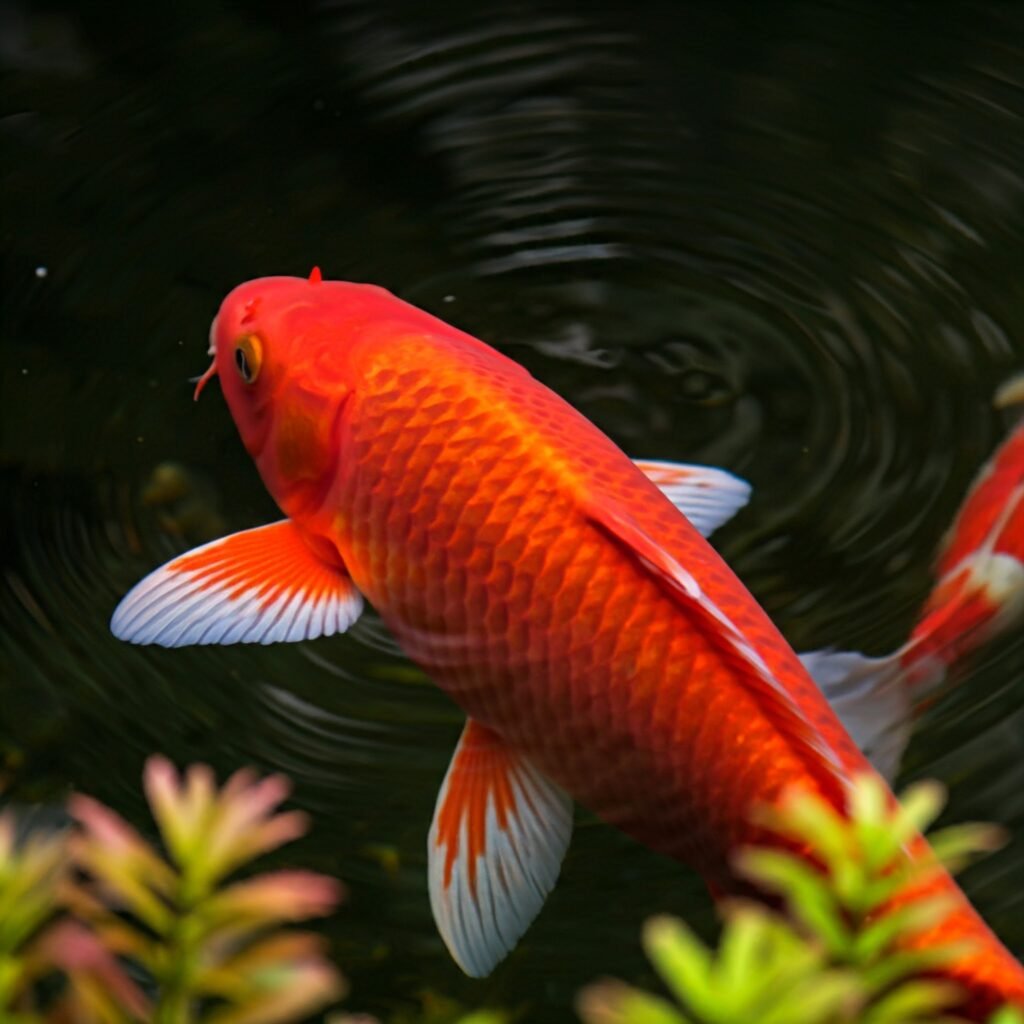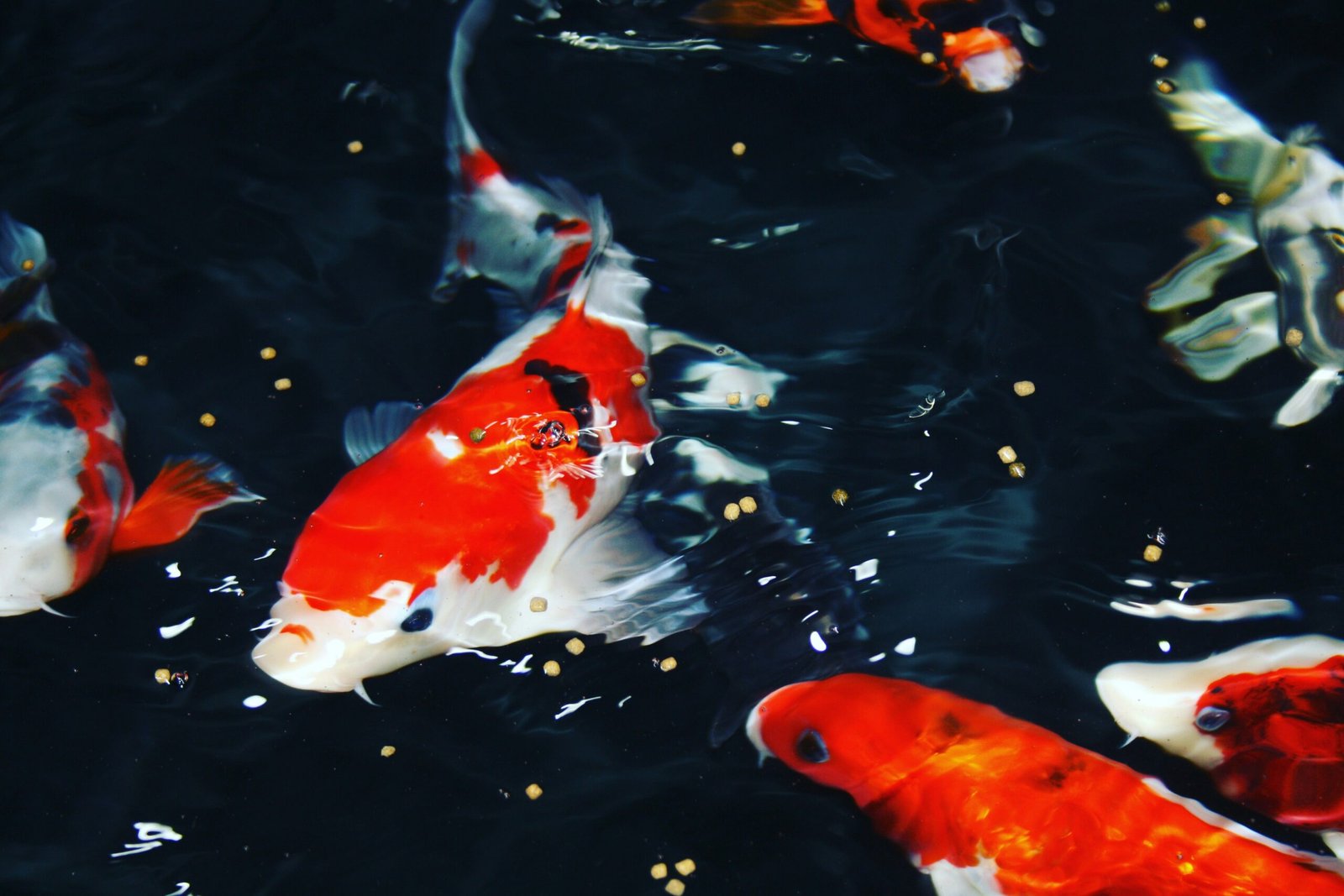
Koi Fish: Can Koi Fish Eat Dog Food?
As they enthusiast, I’ve often found myself pondering various aspects of their care, particularly regarding diet. A common query among koi owners is whether these beautiful aquatic creatures can eat dog food. The answer isn’t straightforward, but it certainly sparks a lot of interest. Koi fish are known to be versatile eaters, capable of consuming a wide range of food types, from specialized fish food to occasional treats. However, it is essential to consider the implications of feeding them dog food.
Understanding Koi Fish Diet
Koi fish are not picky eaters by nature. They are known for their ability to adapt and thrive on various diets, which is part of what makes them such enjoyable pets. However, while koi can indeed consume many different things, feeding them dog food might not always be a wise choice. For instance, while the idea of offering a tasty treat might seem harmless to us, it’s crucial to recognize that dog food is not designed for the unique dietary needs of koi fish. What many people might see as a convenient option could turn out to be detrimental to their health. After all, the staple of a koi’s diet should consist of high-quality fish food that meets their specific nutritional requirements.
The Nutritional Needs of Koi Fish
In exploring this topic, we must delve into the details. Many koi enthusiasts might be surprised to learn that, while koi fish might enjoy the taste of dog food on occasion, doing so too frequently could lead to digestive issues. The high amount of protein found in many dog foods is indispensable for a healthy diet, but koi fish have a different type of digestive system than dogs. Their systems are designed for specific nutrients that allow them to thrive, and a sudden change in diet could lead to struggles with digestion.

The Risks of Feeding Dog Food to Koi
While some koi owners may think it’s a fun idea to throw some leftover dog food into the pond, this practice can lead to serious health problems. Many commercial dog foods contain fillers such as grains and vegetables that may not be suitable for koi fish. Additionally, the ingredients used in dog food can vary significantly, and some may include meats and additives that could be harmful to koi.
A few years ago, I made the mistake of tossing some leftover dog food into my koi pond, thinking it would be a treat for them. Initially, they seemed to enjoy it, darting around and gobbling it up eagerly. However, within a couple of days, I noticed changes in their behavior. Some fish appeared lethargic, and I realized that this was not a sustainable or healthy choice for them. This experience reinforced my understanding of their unique dietary needs and the importance of a balanced diet.
Monitoring Koi Health and Behavior
It’s vital for koi owners to monitor their fish’s health and behavior closely, particularly when introducing new foods. If you decide to offer dog food as an occasional treat, watch for any signs of digestive distress, such as changes in swimming patterns or appetite. Koi fish should be active and curious, and any lethargy or lack of interest in food may indicate a problem.
In addition to their primary diet, koi can benefit from appropriate treats. Some options include fruits and vegetables, such as peas, watermelon, and lettuce. These can be a delightful addition to their diet, offering variety while ensuring they receive the right nutrition. However, I always introduce new foods gradually to prevent any potential digestive discomfort. For instance, starting with small amounts of vegetables allows me to gauge how well they digest the new food before incorporating it more regularly.
Seasonal Dietary Adjustments for Koi Fish
It’s also worth noting that seasonal changes can affect koi fish’s dietary needs. In the warmer months, they tend to be more active and may require more food to sustain their energy levels. Conversely, during colder months, their metabolism slows down, and they eat less. As an experienced koi keeper, I’ve learned to adjust their feeding routine according to the temperature and their activity levels.

During spring and summer, when koi are more active, I increase their feedings to ensure they are getting enough nutrients. However, in the fall, I gradually reduce their food intake as temperatures drop. This adjustment is crucial, as feeding koi during their dormant winter months can lead to health issues. Observing their eating habits closely helps me ensure they are getting the nutrition they need throughout the year.
Importance of Quality Koi Food
While it may be tempting to experiment with various foods, prioritizing high-quality koi food is vital. The market offers many products specifically formulated for koi, which can help achieve optimal health and growth. These foods are usually rich in vitamins, minerals, and probiotics, ensuring that koi fish receive the essential nutrients they need to thrive.
Choosing the right koi food can make a significant difference in their overall health. I always opt for brands that provide a guaranteed analysis of their ingredients and nutritional value. When I see ingredients like fish meal, spirulina, and other natural components, I feel confident that I’m giving my koi the best possible nutrition.

Leave a Reply